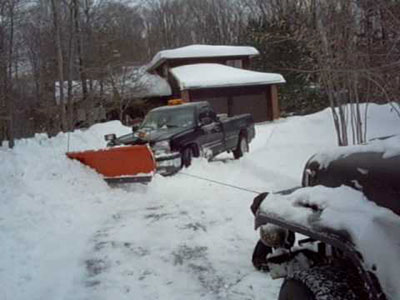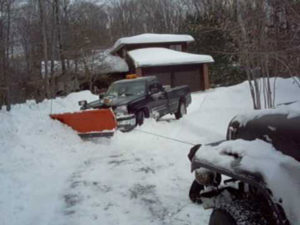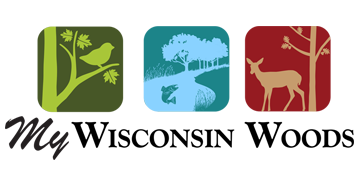
Rural Neighbors: Like Peanut Butter and Jelly
“Distance might separate rural neighbors, but relationships are still important.” –Jim Weber, rural woodland owner in Iowa County

A simplistic look at rural landowners might conclude they come in two flavors – those “from here” and those “not from here.” And it’s true, the two may be as different as peanut butter and jelly, but such pairings can have delicious results. That’s why it pays to get to know – and get along with – your rural neighbors, no matter where they’re from.
To be “from here” begins before birth. The local lineage of these residents greatly precedes the living generation. A family tree rooted at the time of original settlement is the gold standard of “from here.” Not only do connections run deep, they also run wide. Job, social circles, school, church, recreation – everything is rooted in the landscape.
For those “not from here,” the local family lineage extends back for a much briefer time. Even after a couple of generations of newcomers have settled and become well-liked in the community, they’re still not “from here.” Something else better defines them – seeking the ideal. Beauty, wildlife, recreation, hunting, privacy, small towns – the amenities of rural life are the draw. Pressed, they may admit to having rose-colored glasses or being prone to make comments praising the beauty of red barns on a canvas of green, while scorning the smell of manure. As if it’s possible to separate the tuxedoed skunk and its smell.
Jim Weber is clearly not “from here.” Jim bought 48 acres in rural Iowa County to experience and enjoy. For him, the give-and-take was simple: the beauty of the land in exchange for his effort to sustain (and sometimes uncover) its beauty. His days are spent nurturing prairie, savanna, oak woodland, orchard, and garden.
To be sure, this “simple” exchange is not always easy. “The neighbor farmer has pulled my snow plow out of the ditch more times than I would like to admit,” Jim says with a smile. Consider for a moment that it might just be these unexpected or challenging moments that more often involve a neighbor. A neighbor doing what you can’t do.
Value of relationships
Absentee ownership is pretty common in Wisconsin’s rural landscape. So isn’t it worth the peace of mind to know your property (maybe a cabin, too) is being watched by a permanent neighbor when you are gone? Or consider the possibility of a contractor’s request during your timber harvest: access through your neighbor’s land to save you thousands in forest road construction.
And that is not the only money riding on rural relationships – consider the tax implications. Newcomers are often not interested or equipped to farm their tillable ground. Yet active agricultural land is not only taxed at a lower rate than fallow land (i.e., “undeveloped”’ in tax assessment classification) but adjacent woodlands are assessed as “agricultural forest,” reducing taxes by half! In other words, renting your farmland is convenient for the neighboring farmer and results in a smaller tax bill and rental income for you.
We also all know that no matter where you are from, nearly everyone is in the woods the third weekend in November. Few landowners own enough land to manage Wisconsin’s large game species by themselves. In almost all cases, deer and turkey would benefit from neighbors collaborating on management.
Then there is the common currency of neighbors – the barter. Fix a driveway, mow a field, partner on hunting, collect firewood, make hay, lend equipment – time has witnessed the barter of all things. Jim appreciates the value of barter. “My neighbor does favors for me like digging post holes or tilling a field, and in turn he farms a small part of my land for free.” Perfectly executed, this simple transaction costs you little and has great value both for you and others.
Remember: In the end, it won’t matter where you’re from but only if you were someone’s good neighbor.
